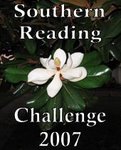 Being sick really stinks. Especially on your very last week of freedom before going back to work and facing the mad crowds of students, colleagues who want to brag about their summer research and travel, and endless, pointless meetings.
Being sick really stinks. Especially on your very last week of freedom before going back to work and facing the mad crowds of students, colleagues who want to brag about their summer research and travel, and endless, pointless meetings. Wasn't feeling too great on Sunday, but I simply attributed that to a bit of overindulgence the previous evening while out with some old friends visiting from out of town. Boy was I wrong! Monday morning greeted me with a stomach ache that made me double over, high fever and chills. August isn't flu season, is it? What did I do to derserve this?? Hubby has been a dear, though, and made me lots of jello and brought me ginger ale every time that I bellow for him to attend to me.
This is a bit of a setback both personally and professionally, as I was hoping to get a bit more research and writing accomplished before going back to work and to write up my long overdue reviews of the following books for the Summer Reading Challenge and Southern Reading Challenge: A Good Man is Hard to Find (Flannery O'Connor), The Heart of a Woman (Maya Angelou), Mademoiselle Victorine (Debra Finerman), The Shadow of the Wind (Carlos Ruiz Zafon). I have my work cut out for me! I have, however, felt justified in indulging myself in some good reading--reading, after all, is a more passive activity and requires less energy than writing.
My advisor attributes my current ill health to my last few tireless days of writing to finish another chapter of the thesis during which I ran down my resistance. Hmmm...is this is her way of appeasing me for having slashed the prior chapter?!
Regardless, I am simply thankful that we bought a new mattress last week and that I have a nice, long novel to read. If confined to bed, it helps one's morale (and keeps one's mind off the tummy ache) to be at least comfortable and entertained.
I spent the great majority of Monday (and most likely will do the same today, as well) reading The Historian by Elizabeth Kostova. I found this novel in hardback a few weeks ago on the discount table of a  bookstore for a mere $5.00. Based on the 300+ pages that I have read in my sickbed, I would have been quite pleased with my purchase had I shelled out the full price...and then some! I have heard people complain that this one gets off to a slow start and that it could have been edited down from its 500+ pages (yes, this one is a chunkster!), but I disagree. I like slowly moving narratives--if there is a reason for the pace and an eventual reward. In this case, it works for me. I look forward to finishing this and sharing my thoughts on it. For now, here's a brief description from Amazon:
bookstore for a mere $5.00. Based on the 300+ pages that I have read in my sickbed, I would have been quite pleased with my purchase had I shelled out the full price...and then some! I have heard people complain that this one gets off to a slow start and that it could have been edited down from its 500+ pages (yes, this one is a chunkster!), but I disagree. I like slowly moving narratives--if there is a reason for the pace and an eventual reward. In this case, it works for me. I look forward to finishing this and sharing my thoughts on it. For now, here's a brief description from Amazon:
If your pulse flutters at the thought of castle ruins and descents into crypts by moonlight, you will savor every creepy page of Elizabeth Kostova's long but beautifully structured thriller The Historian. The story opens in Amsterdam in 1972, when a teenage girl discovers a medieval book and a cache of yellowed letters in her diplomat father's library. The pages of the book are empty except for a woodcut of a dragon. The letters are addressed to: "My dear and unfortunate successor." When the girl confronts her father, he reluctantly confesses an unsettling story: his involvement, twenty years earlier, in a search for his graduate school mentor, who disappeared from his office only moments after confiding to Paul his certainty that Dracula--Vlad the Impaler, an inventively cruel ruler of Wallachia in the mid-15th century--was still alive. The story turns out to concern our narrator directly because Paul's collaborator in the search was a fellow student named Helen Rossi (the unacknowledged daughter of his mentor) and our narrator's long-dead mother, about whom she knows almost nothing. And then her father, leaving just a note, disappears also.






































